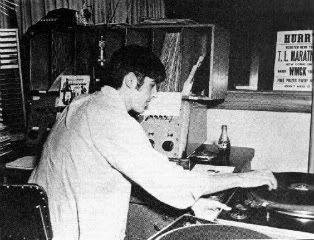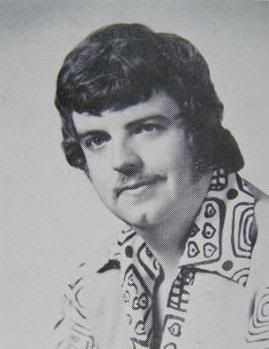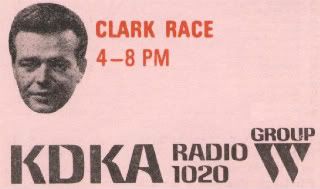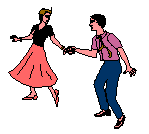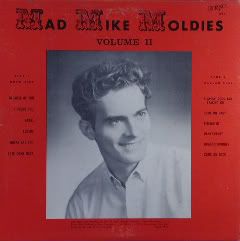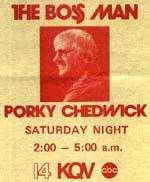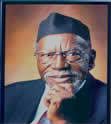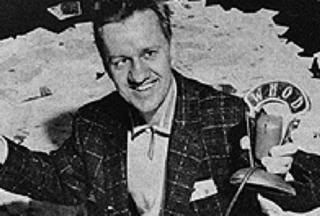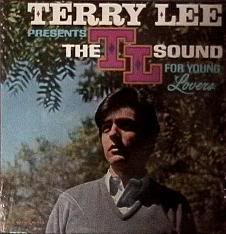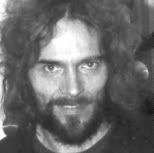Image from Fifties Rewind
How many of you guys remember WKPA in New Kensington, 1150 on your AM dial? They had quite a roster of DJs stacking its on-air roster, with talent like Charlie Apple, Al "Jazzbeaux" Collins, Jeff "The Olde Rocke Shoppe" Allen, Phil Brooks, Alex Mellon, Sean Israel, Joe Fenn, Ford Shankle, Kelly Pidgeon, Mike Alexander, George Hart, Bill McKibben, Jim Dicesare, Terry McGovern, Jim Gray and their last morning drive guy, Ken Hawk.
But if you don't have Bob Livorio at the top of that list in bold red capital letters, shame on you.
The station began in 1940, located at 810 Fifth Avenue in downtown New Kensington, with the studio on the top floor of a two-story building known as the Paragon. The owner's Cooper Brothers music store occupied the street level. The building stood until 1994, when it was felled by flames.
The brothers operated the station under the Allegheny-Kiski Broadcasting Company banner. Like most small town stations, it was heavy on ethnic music, local news and sports at the beginning, but gradually made a move into the Pittsburgh area pop market along with its sister station, WYDD FM.
Now those jocks in the lead paragraph could spin some discs, but the undisputed leader of the WKPA pack and the Allegheny Valley teen club scene was the soft spoken Bob Livorio. He had picked up the turntable bug while in the service, and in 1957 or so landed a gig at his hometown station. Livorio would broadcast from WKPA's Fifth Avenue studio for the next 36 years.
The station started him off in the 3-8 PM slot, but he quickly claimed the Saturday morning position for his request show. Livorio was one of the groundbreaking Pittsburgh DJs who played "race" (R&B and doo-wop) music, though not as exclusively as Porky.
While he'd pop in a rocker or two like "Psycho" by the Sonics or "Surfer Joe"/"Wipeout" by the Surfaris (after all, he was a dance jock, too), he was best known for spinning ballads, airing the grinders "Forever" by the Marvelettes, "I Only Have Eyes For You" by the Flamingos, "Angel Baby" by Rosie & the Originals and "Have I Sinned" by Donnie Elbert.
Livorio also aired all the more obscure tunes Pittsburghers loved such as "I Need Your Love" by the Metallics, "My Confession Of Love" by City fav Elbert, "Bring Back Your Love To Me" by the local Smoothtones (which he broke), "Ankle Bracelet" by the Pyramids and "Valley High" by Bill & Doree Post.
Not one for gimmicks or catchphrases, his morning program was simply "The Bob Livorio Show." His calm conversational tone behind the mic was as much of a hit as his records, and he was deluged by kids who wanted a personal dedication during the show.
He received several hundred written requests every week, and his daughter Cynthia Brennan, a DJ and voice-over/ad spokeswoman, recalled for Rex Rutkoski of the Valley News Dispatch the times they were "sitting on the living room floor on Friday nights with her brothers, Bob and Frank, and their mother, Barbara, as her dad sorted the letters, and the family discussed them." What better way to choose a teen playlist than to have the kids help decide?
Livorio was so popular that when the Allegheny-Kiski Valley area highs had their Kennywood picnic outing scheduled for a Saturday in 1961, the students asked the park to broadcast his show through the PA so they wouldn't miss a Livorio spin while standing in line for a seat on the Racer.
He was just as popular with the local artists. When the British Invasion landed in Pittsburgh, Livorio stuck to his guns and his format by playing the Skyliners, Vogues, Fenways/Racket Squad and Lou Christie. And like any good jock, he issued a couple of vinyl LPs filled with songs he played on the show, which are now collector rarities.
But Livorio really hit his stride as a hop DJ in the Valley. Kids set their weekend calendars around his shows. On Friday night, his fans would follow him to Henry's in Tarentum or the Ridge Avenue School, Saturday morning was time to tune into the show, then catch Livorio that night at the YMCA and end the weekend on Sunday night when he jocked at the Birdville Fire Hall in Natrona Heights.
That intersection of radio and dance DJ also makes Livorio the most likely guy to have broken Tommy James "Hanky Panky." He's often credited with discovering the record, popularizing it at his dances and on his show before the 800 pound gorillas at KQV and KDKA, Chuck Brinkman and Clark Race (who also has dibs as the first jock to spin the 45 from a studio), blew it up on the Pittsburgh airwaves.
Bob Mack, who was huge playing Valley dances at the Tarena, also has a claim on it, as does Mad Mike, both of whom wore out the James' wax at hops. Livorio refuses to be drawn into the fray, although Ed Salamon, in his local mother lode of information "Pittsburgh's Golden Age of Radio," mentioned him as a strong candidate to have first played the song. Where else but in Pittsburgh would guys still be trying to straighten out a 45 year old story?
(Ed wrote to let us know that there is still no definitive answer to the "Hanky Panky" mystery. He explained that "Bob Mack/Mad Mike make the claim and Clark Race believed he started it. "Pittsburgh's Golden Age of Radio" mentions Livorio's story, which he gave me in writing, but was worded as not to preclude the Mack/Mike and Race's claims, as I believe they each could have been unaware of the others." Hey, maybe the Tommy James' hit is a case of spontaneous combustion on Pittsburgh's turntables.)
Livorio survived a pair of new owners and a format change or three at WKPA, but in 1992 the station was sold to a religious programmer, becoming WGBN, and that was the end of the oldies road for the jock. He's still living in New Kensington, and last we heard was the owner of the Dairy Queen on Freeport Road in Natrona Heights, still spinning the sweetest treats in the Valley.


